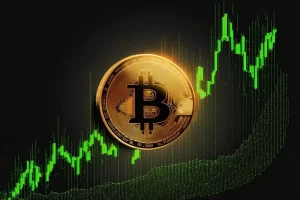Cryptocurrency Prices Live in Philippine (PHP – Philippine Piso)
| # | Name | Price | Market Cap | Volume 24H | Available Supply | Price Graph (7D) |
|---|
What is Cryptocurrency?
 Cryptocurrency is a type of digital or virtual currency that utilizes cryptography for secure and decentralized financial transactions. Unlike traditional fiat currencies issued and regulated by governments or central banks, cryptocurrencies operate on decentralized networks, typically based on blockchain technology. This technology records transactions across multiple computers, ensuring transparency, security, and immutability. Bitcoin, launched in 2009, was the first cryptocurrency and remains the most well-known. Since then, thousands of other cryptocurrencies, including Ethereum, Ripple, and Litecoin, have emerged, each with unique features and applications.
Cryptocurrency is a type of digital or virtual currency that utilizes cryptography for secure and decentralized financial transactions. Unlike traditional fiat currencies issued and regulated by governments or central banks, cryptocurrencies operate on decentralized networks, typically based on blockchain technology. This technology records transactions across multiple computers, ensuring transparency, security, and immutability. Bitcoin, launched in 2009, was the first cryptocurrency and remains the most well-known. Since then, thousands of other cryptocurrencies, including Ethereum, Ripple, and Litecoin, have emerged, each with unique features and applications.
Where to Buy Bitcoin and Other Cryptocurrencies in the Philippines
There are multiple options for buying Bitcoin and other cryptocurrencies in the Philippines, including local exchanges, global platforms, and P2P services:
Cryptocurrency Exchanges
Exchanges are the most popular method for buying, selling, and trading cryptocurrencies. The Philippines has a well-developed exchange ecosystem, offering various options for users:
- Coins.ph: One of the most popular cryptocurrency platforms in the Philippines, Coins.ph allows users to buy, sell, and store Bitcoin, Ethereum, Ripple, and Bitcoin Cash. It supports Philippine Peso (PHP) deposits and withdrawals, making it easy for users to convert between fiat and cryptocurrencies. Coins.ph also offers additional services such as bill payments, mobile top-ups, and remittances.
- PDAX (Philippine Digital Asset Exchange): PDAX is a local cryptocurrency exchange regulated by the Bangko Sentral ng Pilipinas (BSP). It offers a wide range of cryptocurrencies, including Bitcoin, Ethereum, and Ripple, and supports PHP deposits and trading pairs. PDAX provides a user-friendly interface and mobile app for easy access to the exchange.
- Binance: As one of the world’s largest cryptocurrency exchanges, Binance is widely used in the Philippines. It offers a vast selection of cryptocurrencies, low trading fees, and advanced trading features. Binance supports PHP deposits and trading pairs, making it accessible to Filipino users.
- Abra: Abra is a mobile-based cryptocurrency wallet and exchange that allows users to buy, sell, and store a variety of cryptocurrencies. Abra supports PHP deposits and withdrawals and offers features like interest-earning accounts for digital assets.
- BloomX: A local exchange that offers cryptocurrency trading services and supports PHP deposits. BloomX is known for its focus on compliance and security, providing a safe platform for Filipino users to buy and sell digital assets.
Cryptocurrency Regulation in the Philippines
Current Regulatory Landscape
The Philippines has taken a proactive and balanced approach to cryptocurrency regulation, focusing on consumer protection, financial stability, and the prevention of illegal activities. The regulatory framework for cryptocurrencies in the Philippines involves oversight from several key institutions:
- Bangko Sentral ng Pilipinas (BSP): The BSP is the central bank of the Philippines and plays a significant role in regulating the cryptocurrency market. In 2017, the BSP issued Circular No. 944, which provides guidelines for the registration and operation of virtual currency exchanges in the country. The circular requires exchanges to register with the BSP, implement AML and KYC measures, and ensure consumer protection.
- Securities and Exchange Commission (SEC): The SEC oversees the regulation of securities and investment-related activities in the Philippines. It has issued guidelines on the registration and offering of security tokens, initial coin offerings (ICOs), and other cryptocurrency-related activities to ensure compliance with securities laws and protect investors.
- Cagayan Economic Zone Authority (CEZA): CEZA is a government-owned corporation that operates the Cagayan Special Economic Zone and Freeport. It has established a regulatory framework for cryptocurrency exchanges and blockchain companies operating within the zone, offering incentives and a supportive environment for crypto businesses.
Key Regulations
- Exchange Registration: Cryptocurrency exchanges operating in the Philippines are required to register with the BSP and comply with its regulations. This includes implementing robust security measures, conducting regular audits, and maintaining sufficient capitalization to protect customer funds.
- Anti-Money Laundering (AML) and Counter-Terrorism Financing (CTF): Exchanges must implement strict AML and CTF measures, including KYC procedures, transaction monitoring, and reporting suspicious activities to the BSP. These measures aim to prevent the use of cryptocurrencies for illicit purposes.
- Consumer Protection: Regulations focus on consumer protection by requiring exchanges to segregate customer funds from company assets, provide clear information about fees and risks, and implement measures to prevent hacking and fraud.
- Taxation: The Bureau of Internal Revenue (BIR) has clarified that cryptocurrency transactions are subject to taxation. Cryptocurrency users are required to report their gains and losses on their annual tax returns, and profits from trading or investing in digital assets are subject to income tax.